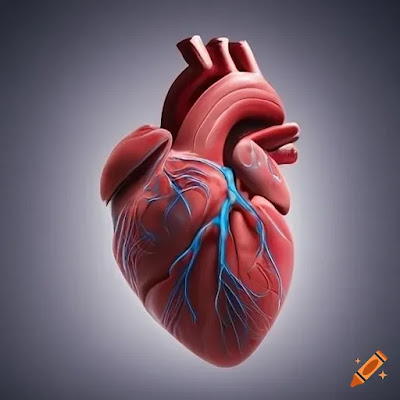Nexletol (Bempedoic Acid): A New Era in Cholesterol-Lowering Medications
Nexletol (Bempedoic Acid): A New Era in Cholesterol-Lowering Medications
Introduction
Cholesterol management is a crucial aspect of cardiovascular health, as high levels of low-density lipoprotein (LDL) cholesterol can lead to atherosclerosis, heart disease, and stroke. Traditionally, statins have been the cornerstone of cholesterol-lowering therapy. However, not all patients respond well to statins or experience intolerable side effects. This unmet need has paved the way for new therapeutic options, one of which is Nexletol (bempedoic acid). Approved by the U.S. Food and Drug Administration (FDA) in early 2020, bempedoic acid represents a novel mechanism for lowering cholesterol and offers hope for patients who struggle with statin therapy.
Understanding Cholesterol and Its Impact on Health
Cholesterol is a waxy, fat-like substance found in every cell of the body. While it’s essential for producing hormones, vitamin D, and bile acids that help digest fat, excess cholesterol in the bloodstream can lead to serious health issues. There are two main types of cholesterol:
- Low-Density Lipoprotein (LDL): Often referred to as “bad” cholesterol, high levels of LDL can contribute to plaque buildup in arteries, increasing the risk of heart attack and stroke.
- High-Density Lipoprotein (HDL): Known as “good” cholesterol, HDL helps remove other forms of cholesterol from the bloodstream. Higher levels of HDL are associated with a lower risk of heart disease.
The balance between LDL and HDL cholesterol is crucial for maintaining cardiovascular health. Lifestyle choices, such as diet and exercise, play a significant role in cholesterol levels. However, genetic factors can also influence cholesterol metabolism, leading to conditions like familial hypercholesterolemia, where individuals have persistently high cholesterol levels despite lifestyle changes.
The Role of Statins in Cholesterol Management
Statins have been the first-line treatment for managing high cholesterol for several decades. They work by inhibiting the enzyme HMG-CoA reductase, which plays a key role in the liver’s production of cholesterol. By lowering LDL levels, statins effectively reduce the risk of cardiovascular events.Despite their efficacy, statins are not suitable for everyone. Some individuals experience side effects, including muscle pain, liver enzyme abnormalities, and gastrointestinal issues. Additionally, certain patients may have statin intolerance, meaning they cannot take these medications due to adverse effects. This has created a demand for alternative therapies that can provide LDL-lowering effects without the associated side effects of statins.
Introduction to Nexletol (Bempedoic Acid)
Nexletol (bempedoic acid) is a new medication that offers a different approach to lowering cholesterol. It belongs to a class of drugs known as ATP citrate lyase (ACL) inhibitors. ACL is an enzyme that plays a critical role in cholesterol biosynthesis. By inhibiting this enzyme, bempedoic acid reduces the production of cholesterol in the liver and subsequently lowers LDL levels in the bloodstream.
Mechanism of Action
The mechanism of action of bempedoic acid is distinct from that of statins. While statins work directly on the HMG-CoA reductase enzyme, bempedoic acid acts upstream in the cholesterol synthesis pathway. This unique mechanism allows bempedoic acid to lower LDL cholesterol levels without the common side effects associated with statins.Bempedoic acid is prodrug, meaning it is converted into its active form in the liver. This active form then inhibits ACL, leading to reduced cholesterol synthesis. The reduction in cholesterol levels triggers an increase in LDL receptors on liver cells, which enhances the clearance of LDL from the bloodstream, resulting in lower overall LDL cholesterol levels.
Clinical Trials and Efficacy
The efficacy of bempedoic acid has been established through several clinical trials. The most notable trial is the CLEAR Wisdom study, which evaluated the effects of bempedoic acid in patients with hyperlipidemia who were unable to achieve adequate LDL cholesterol control with statins. The results showed that bempedoic acid significantly reduced LDL cholesterol levels compared to placebo.In the trial, participants taking bempedoic acid experienced an average reduction in LDL cholesterol of approximately 18-25% after 12 weeks of treatment. Additionally, bempedoic acid was well-tolerated, with a side effect profile that was generally favorable compared to statins. Common side effects included muscle spasms and abdominal pain, but these were less frequent than those reported with statin therapy.
Patient Population
Nexletol is indicated for adults with hyperlipidemia who require additional LDL cholesterol-lowering therapy. It may be used alone or in combination with other lipid-lowering medications, including statins. The medication is particularly beneficial for:
- Patients who are statin-intolerant or experience side effects from statins.
- Individuals with a history of cardiovascular disease who require further LDL cholesterol reduction.
- Patients who cannot achieve adequate LDL levels through lifestyle modifications alone.
Dosing and Administration
Bempedoic acid is administered orally, typically in the form of a 180 mg tablet taken once daily. It can be taken with or without food, offering convenience for patients. Importantly, healthcare providers may consider adjusting the dose in patients with renal impairment to ensure safety and efficacy.
Safety Profile and Side Effects
The safety profile of bempedoic acid has been evaluated in clinical trials, and it appears to be generally well-tolerated. The most common side effects reported include:
- Muscle spasms
- Abdominal pain
- Hyperuricemia (increased uric acid levels, potentially leading to gout)
- Elevated liver enzymes
Unlike statins, bempedoic acid is not associated with a significant risk of muscle-related side effects, making it an attractive option for those with statin intolerance. However, healthcare providers should monitor patients for any adverse effects, especially in those with existing conditions that may be exacerbated by bempedoic acid.
Combination Therapy
One of the strengths of bempedoic acid is its potential for use in combination therapy. For patients who require additional LDL reduction beyond what statins can provide, bempedoic acid can be used alongside statins or other cholesterol-lowering agents such as ezetimibe. This combination approach can maximize LDL reduction while minimizing the risk of adverse effects often associated with higher doses of statins.
Real-World Applications
In the real world, healthcare providers are increasingly recognizing the value of bempedoic acid as a treatment option for patients struggling with cholesterol management. Its unique mechanism of action and favorable side effect profile position it as an essential tool in the fight against cardiovascular disease.Healthcare providers are encouraged to assess individual patient needs, including cholesterol levels, previous treatment experiences, and potential side effects. Bempedoic acid can be particularly beneficial in patients with a history of cardiovascular events, those with familial hypercholesterolemia, and individuals who find statin therapy intolerable.
Conclusion
Nexletol (bempedoic acid) represents a significant advancement in the landscape of cholesterol-lowering medications. Its unique mechanism of action, coupled with a favorable safety profile, makes it a valuable option for patients who are unable to tolerate statins or require additional LDL cholesterol reduction. As healthcare providers continue to explore personalized approaches to cholesterol management, bempedoic acid stands out as a promising therapy that may help improve cardiovascular outcomes and enhance the quality of life for many patients.The introduction of bempedoic acid not only expands the treatment options available for hyperlipidemia but also reinforces the importance of continuous innovation in the field of cardiovascular medicine. As research continues and more real-world data becomes available, bempedoic acid may emerge as a cornerstone therapy in the management of high cholesterol, ultimately contributing to improved heart health for countless individuals.Cite this-Search Keywords:- Nexletol pricing, Bempedoic acid side effects, Cholesterol-lowering medications, Nexletol vs statins, Bempedoic acid clinical trials, High cholesterol treatment options, Nexletol dosage recommendations, Cardiovascular disease prevention, Cholesterol management strategies, Statin intolerance solutions, Nexletol patient reviews, Bempedoic acid mechanism of action, Combination therapy for high cholesterol, Bempedoic acid efficacy, Prescription cholesterol medications.
Visit us at: https://www.ameripharmtimes.in




Comments